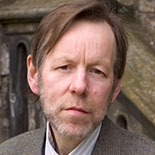 Dennis O’Driscoll (January 1, 1954 – December 24, 2012) was an Irish poet, essayist, critic and editor.
Dennis O’Driscoll (January 1, 1954 – December 24, 2012) was an Irish poet, essayist, critic and editor.
Regarded as one of the best European poets of his time, Eileen Battersby considers him “the lyric equivalent of William Trevor” and a better poet “by far” than Raymond Carver. Gerard Smyth regards him as “one of poetry’s true champions and certainly its most prodigious archivist”. His book on Seamus Heaney is regarded as the definitive biography of the Nobel laureate.
In all, O’Driscoll wrote nine books of poetry, three chapbooks, and two collections of essays and reviews. The majority of his works can be characterized by the use of economic language and the recurring motifs of mortality and the fragility of everyday life. As he aged, O’Driscoll’s works become more fluid and thoughtful as well as more frequent, and, according to some sources, like Alan Brownjohn of The Sunday Times for instance, even though he is younger than some of the poetic greats, “at best he is already their equal.”
MISSING GOD
Dennis O’Driscoll
His grace is no longer called for
before meals: farmed fish multiply
without His intercession.
Bread production rises through
disease-resistant grains devised
scientifically to mitigate His faults.
Yet, though we rebelled against Him
like adolescents, uplifted to see
an oppressive father banished –
a bearded hermit – to the desert,
we confess to missing Him at times.
Miss Him during the civil wedding
when, at the blossomy altar
of the registrar’s desk, we wait in vain
to be fed a line containing words
like ‘everlasting’ and ‘divine’.
Miss Him when the TV scientist
explains the cosmos through equations,
leaving our planet to revolve on its axis
aimlessly, a wheel skidding in snow.
Miss Him when the radio catches a snatch
of plainchant from some echoey priory;
when the gospel choir raises its collective voice
to ask Shall We Gather at the River?
or the forces of the oratorio converge
on I Know That My Redeemer Liveth
and our contracted hearts lose a beat.
Miss Him when a choked voice at
the crematorium recites the poem
about fearing no more the heat of the sun.
Miss Him when we stand in judgement
on a lank Crucifixion in an art museum,
its stripe-like ribs testifying to rank.
Miss Him when the gamma-rays
recorded on the satellite graph
seem arranged into a celestial score,
the music of the spheres,
the Ave Verum Corpus of the observatory lab.
Miss Him when we stumble on the breast lump
for the first time and an involuntary prayer
escapes our lips; when a shadow crosses
our bodies on an x-ray screen; when we receive
a transfusion of foaming blood
sacrificed anonymously to save life.
Miss Him when we exclaim His name
spontaneously in awe or anger
as a woman in a birth ward
calls to her long-dead mother.
Miss Him when the linen-covered
dining table holds warm bread rolls,
shiny glasses of red wine.
Miss Him when a dove swoops
from the orange grove in a tourist village
just as the monastery bell begins to take its toll.
Miss Him when our journey leads us
under leaves of Gothic tracery, an arch
of overlapping branches that meet
like hands in Michelangelo’s Creation.
Miss Him when, trudging past a church,
we catch a residual blast of incense,
a perfume on par with the fresh-baked loaf
which Milosz compared to happiness.
Miss Him when our newly-fitted kitchen
comes in Shaker-style and we order
a matching set of Mother Ann Lee chairs.
Miss Him when we listen to the prophecy
of astronomers that the visible galaxies
will recede as the universe expands.
Miss Him when the sunset makes
its presence felt in the stained glass
window of the fake antique lounge bar.
Miss Him the way an uncoupled glider
riding the evening thermals misses its tug.
Miss Him, as the lovers shrugging
shoulders outside the cheap hotel
ponder what their next move should be.
Even feel nostalgic, odd days,
for His Second Coming,
like standing in the brick
dome of a dovecote
after the birds have flown.
==========
TOMORROW
Dennis O’Driscoll
I
Tomorrow I will start to be happy.
The morning will light up like a celebratory cigar.
Sunbeams sprawling on the lawn will set
dew sparkling like a cut-glass tumbler of champagne.
Today will end the worst phase of my life.
I will put my shapeless days behind me,
fencing off the past, as a golden rind
of sand parts slipshod sea from solid land.
It is tomorrow I want to look back on, not today.
Tomorrow I start to be happy; today is almost yesterday.
II
Australia, how wise you are to get the day
over and done with first, out of the way.
You have eaten the fruit of knowledge, while
we are dithering about which main course to choose.
How liberated you must feel, how free from doubt:
the rise and fall of stocks, today’s closing prices
are revealed to you before our bidding has begun.
Australia, you can gather in your accident statistics
like a harvest while our roads still have hours to kill.
When we are in the dark, you have sagely seen the light.
III
Cagily, presumptuously, I dare to write 2018.
A date without character or tone. 2018.
A year without interest rates or mean daily temperature.
Its hit songs have yet to be written, its new-year
babies yet to be induced, its truces to be signed.
Much too far off for prophecy, though one hazards
a tentative guess—a so-so year most likely,
vague in retrospect, fizzling out with the usual
end-of-season sales; everything slashed:
your last chance to salvage something of its style.